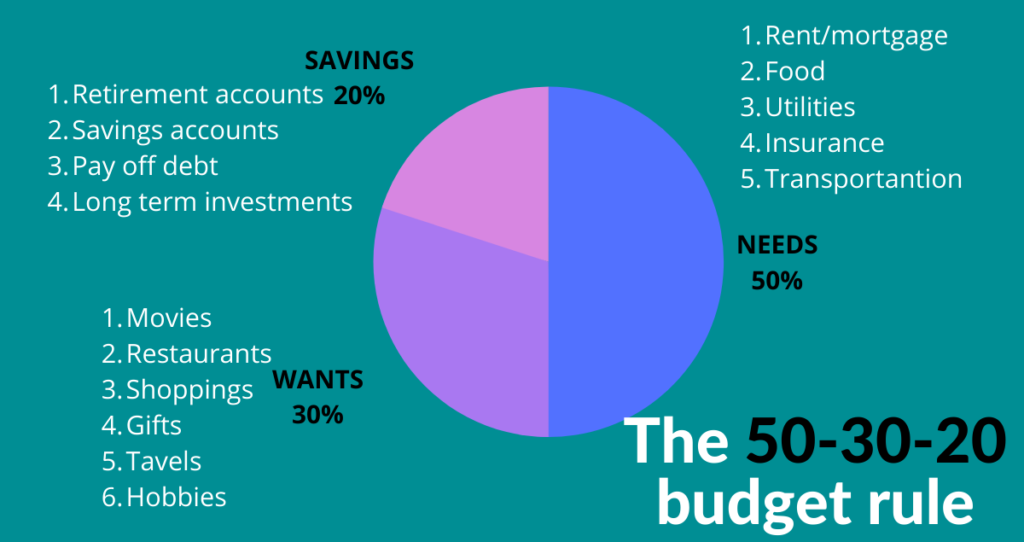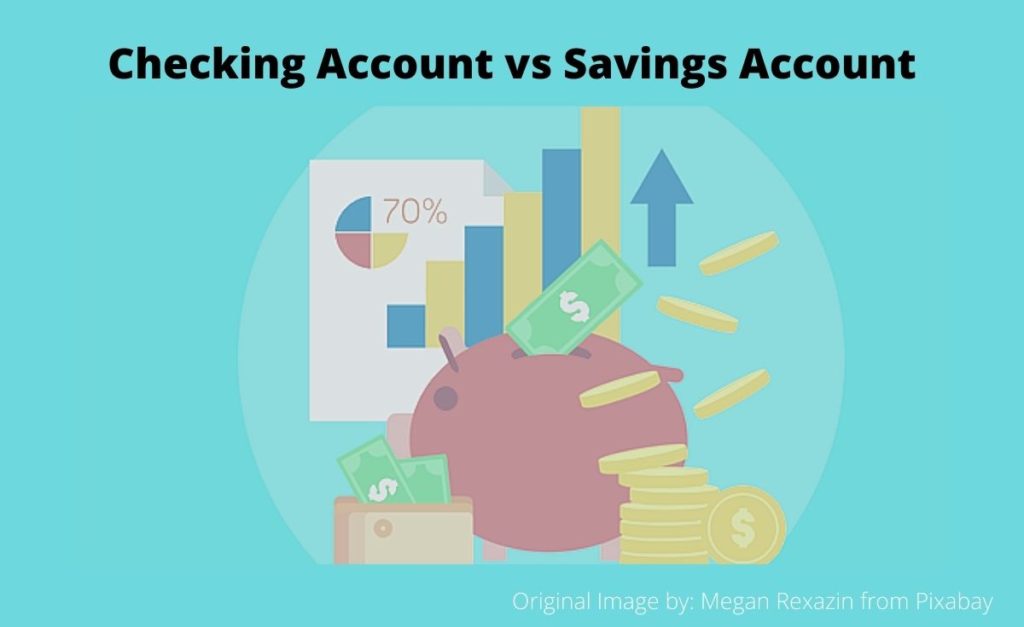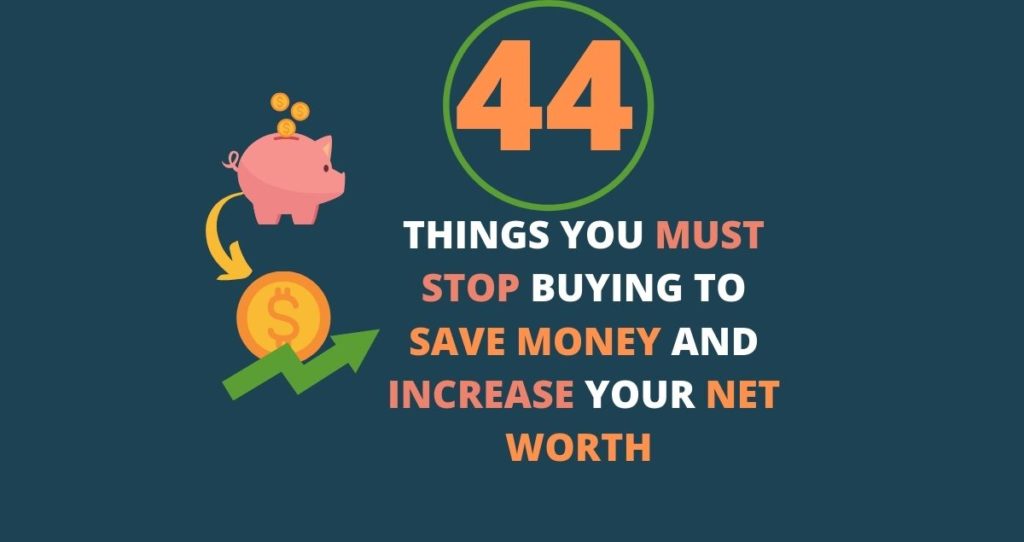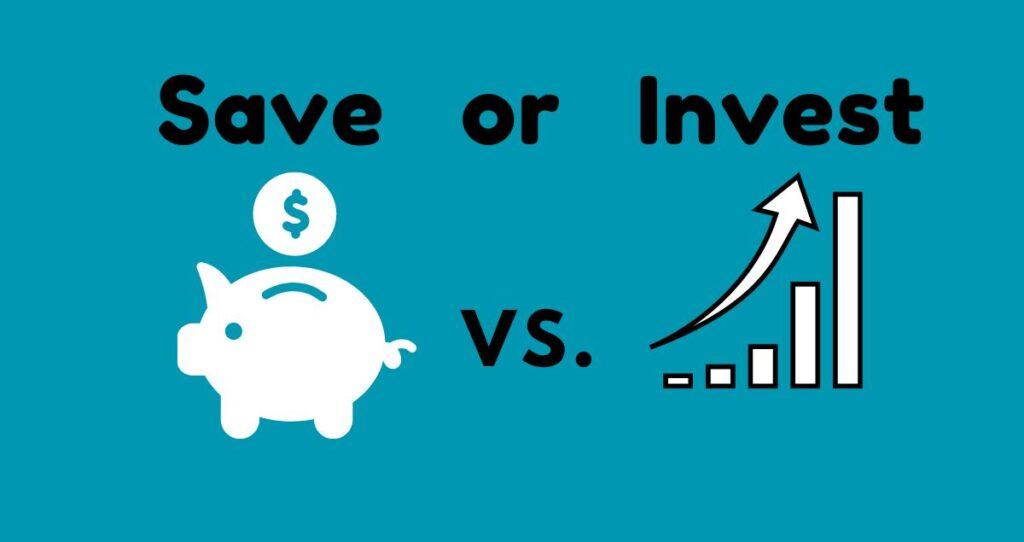Are you considering certificate of deposit (CD) investments but don’t know how CDs work? Investing in CDs can be intimidating but with a better understanding of how they work and how to pick the right one, certificates of deposit can be an attractive and secure option for investing money. CDs pay fixed interest rates and guarantee the safety of your money through FDIC and NCUA insurance up to $250,000 per depositor and insured account.
If you are getting started with CD investing and need to know the ins and outs of certificates of deposit, this guide is all you need. In this post, we will provide an in-depth guide on how CDs work, how to open a CD account, different types of CDs, and how to manage your CD investments and maximize your return. I will also cover the pros and cons of investing in CDs, how CDs compare to other deposit accounts such as traditional savings and money market accounts(MMAs), and what to do with your CD money after maturity.
To learn the proper ways to invest in CDs, keep reading.
How do CDs work?
A certificate of deposit is a deposit account you can open from banks, credit unions, and other financial institutions. When you deposit funds into a CD account, the bank or financial institution agrees to hold your money for a set term in exchange for a fixed interest rate. Unlike traditional savings accounts, CDs have a fixed rate of return throughout the term. Your CD will specify the account’s interest rate and annual percentage yield(APY).
You’ll receive your initial deposit plus any accrued interest at the end of your CD term. It’s important to note that if you withdraw your funds before the end of the term, you may be subject to an early CD withdrawal penalty. The penalty for taking money out of a CD early is usually several months of interest. For example, withdrawing money from a 12-month CD before maturity can cost you three months of penalty interest.
CDs are a low-risk investment option, making them a popular choice for those who want to earn a guaranteed return on their money without worrying about market fluctuations. CDs are FDIC/NCUA insured up to $250,000 per depositor, providing an extra layer of security for your investment.
How to open a CD account?
Now that you understand how CDs work, it is time to learn how to open a CD account. Opening a CD account is straightforward and can be completed in a few steps. Here is a step-by-step guide to opening a CD account.
1. Evaluate your financial goals
Knowing your financial and saving goals is essential before investing in CDs. Are you trying to save for a long-term goal such as retirement, a house down payment, or a college education? Are you interested in preserving your principal amount by minimizing risks while earning a return? Knowing the answers to these questions will help you invest in the correct CD account.
2. Research and choose a bank or credit union that offers CD accounts
After deciding that investing in CDs is right for you, it will be time to research different institutions that offer CDs, such as banks, credit unions, and other institutions. As you evaluate different institutions, remember to compare their rates, fees, terms, and types of CDs they offer.
3. Make sure the institution is FDIC/NCUA insured
CDs are relatively safe because they guarantee the principal and a fixed interest rate for the entire CD term. Without this guarantee, these investment products would be some of the worst investments to pursue as they come with lower rates than alternatives. For this reason, never open a CD from an institution that is not FDIC-insured for banks or NCUA for credit unions.
4. Choose your term very carefully
You might need to choose a short-term or a long-term CD, depending on your saving goals. Choose a short-term CD if you might need access to your cash sooner. For example, a six-month certificate of deposit can be a good investment option if you are saving for a car down payment. On the other hand, choose a long-term CD if you are saving for retirement and other long-term saving goals.
For example, a 5-year or 10-year CD will be well suited for retirement savings. You can also choose a liquid CD/no-penalty CD, which charges no early CD penalty. Another option to consider is CD laddering, which allows you to open multiple CDs with different maturity dates.
You should also decide if you want the internet to be paid to you or added to your account. You earn more by reinvesting your CD interest in the account due to compounding interest.
If you don’t know which CD to invest money in, check out this detailed list of 11 types of CDs.
5. Get all your documents ready
Once you have selected the institution and know the correct CD to open, gather the required documents, such as government-issued identification and proof of address. Most banks will also ask you to provide your social security number.
6. Open your CD in person or online
Depending on your preferences, you can open a CD online or in person. Opening a CD in person lets you talk to a representative, ask as many questions as possible, and get answers immediately.
You can also open a certificate of deposit account online from the comfort of your couch. Most banks and credit unions have developed platforms and mobile apps that seamlessly open a CD account online. However, opening a CD account online might take a long time as the institution must verify your identity.
7. Decide how to fund your CD account
Before you start earning interest from your CD account, you need to make a deposit. If you are opening a certificate of deposit in person, you can fund the account by check or cash. If you are opening an account online, it is best to transfer your funds to the account from another bank account.
8. Read the fine print of your CD terms
Each CD has its terms, and institutions have different terms, fees, charges, and grace periods associated with their CDs. So, it is essential to read the fine print of your CD, as it covers these details. You should know when your CD matures, early CD withdrawal fees, what happens to your account after maturity, how long the grace period is, the interest rate and the APR, etc.
You might also like: What do you do when your CD matures?
9. Wait for your application to be processed
Once you have completed and submitted your CD account application, the bank will process it and approve your CD account.
Where to open a CD account?
When opening a CD account, you have a few options. You could choose to go with your current bank or credit union or open an account with a different institution. However, not all banks offer the same CD rates, fees, and terms. So, it’s essential to shop around and compare your options.
Start by researching which banks offer the best CD rates for the term length you’re interested in. Also, check for any penalties for early withdrawals.
Customer service is another important consideration when choosing where to open a CD account. Look for banks with high customer satisfaction ratings and a reputation for good service. This can help ensure that you receive prompt assistance if you have any questions or concerns about your account.
Example of investing in CDs
To better understand how CDs work, let’s use a simple example.
Let’s assume you have $10,000 you want to invest in CDs. You research your options and find a 5-year CD offering a 2.5% interest rate. If you decide to invest in this CD, you will create a CD account with the company and deposit $10,000. Since this is a 5-year CD, you will earn a yearly interest of $262 or a total interest of $1,314 after five years. In other words, when your CD matures, you will receive the $10,000 you deposited plus $1,314.08 in interest. Your take-home will be $11,314.08.
This may not sound like a significant return, but CDs are considered low-risk investments and provide a consistent source of income.
Of course, this is just one example of a CD investment, and the specific interest rates and terms will vary depending on the bank and type of CD you choose. In the following section, we’ll explore the different types of CDs available to help you decide which CD is best for your saving goals.
12 different types of CDs and how they work
While CDs are a low-risk investment option, they come in several types that can affect your return. I should also mention that not all banks and credit unions offer all kinds of CDs. Here is a list of 12 types of CDs to choose from.
- Traditional CDs. The most common CD type is a traditional one, which pays a fixed interest rate for its lifetime.
- IRA CDs. You can open IRA CDs from banks, credit unions, and other financial institutions. Just like standard individual retirement accounts, IRA CDs also come with tax benefits, allowing you to save for retirement.
- High-yield CDs offer higher rates than traditional CDs, usually offered by online banks and credit unions.
- Jumbo CDs. Jumbo CDs require a larger deposit amount than traditional CDs and have higher rates. Most financial institutions require at least $100,000 to open a Jumbo CD account.
- Bump-up CDs. Bump-up CDs are types of CDs that allow you to bump up the interest rates after rates have increased significantly. All you have to do is ask your bank to increase your rate.
- Step up CDs. Like Bump-up CDs, Step-up CDs have the flexibility to increase the interest rates. Unlike Bump-up CDs, in which you request your institution to increase your interest rate, the bank will increase your CD rate based on a predetermined schedule.
- Brokered CDs. These are CDs offered by brokerage companies or third-party companies other than credit unions and banks.
- Zero-coupon CDs. Zero-coupon CDs are types sold at a discount and then redeemed at maturity for their total value. These CDs don’t pay regular interest. Instead, you pocket the difference between what you paid and their total value at maturity.
- Callable CDs. Callable CDs are like traditional ones, except the issuer can recall/redeem them before maturity. The bank will give you the principal and pay you accrued interest if they are recalled before maturity.
- Liquid CDs/no-penalty CDs. No-penalty CDs are certificates of deposit with no early withdrawal penalty. Having no penalty, however, also means that liquid CDs have lower rates.
- Addon-on CDs. Add-on CDs allow you to make additional deposits during your CD term.
- Special CDs/Promotional CDs/ Bonus CDs. These CDs offer higher rates than standard CDs offered by financial institutions as an incentive to attract new depositors. Special CDs come with rates as high as 5% or more.
What happens when a CD matures?
One of the most important things to remember when investing in CDs is your maturity date. This is the date your CD term ends. After this date, you will have different options for what to do with your money.
Most banks give you a grace period to decide on your CD account. The grace period usually ranges between 5 and 10 business days. However, shorter CDs, such as a one-month CD, tend to have a much shorter grace period.
The following are things to do after your CD has matured.
- Withdrawal of your cash(principal and interest). After your CD has matured, you can withdraw your principal amount and accrued interest. You can then put your money into a savings account if your savings goals have changed or invest it in higher-return investments such as stocks, mutual funds, ETFs, etc.
- Reinvest your money in a new CD. If you don’t need the cash and still want to enjoy the benefits of CDs, put your money into a new CD.
- Do nothing. When you do nothing after your CD has matured, most institutions usually renew your CD for the same term, but at the current rates, the institution offers.
The benefits of investing in CDs
Despite their lack of flexibility and vulnerability to inflation, CDs offer several benefits that make them a valuable addition to any investment portfolio. Here are the benefits of investing in a certificate of deposit and why you should put your money in a CD account.
- Guaranteed return. Unlike other investment options, CDs come with a fixed interest rate that remains unchanged throughout the investment term.
- CDs are low-risk. As FDIC-insured deposits, they are one of the safest investment options available. If the bank fails, your investment is protected up to $250,000 per account holder.
- CDs are great for diversification. They provide a way to diversify your portfolio without taking too much risk. By allocating a portion of your portfolio to CDs, you can balance out higher-risk investments and potentially reduce overall portfolio volatility.
- CDs are best for long-term savings goals. For example, if you are saving for a down payment on a house, you should put your money in a CD instead of a traditional savings account.
Disadvantages of CDs
While CDs offer several advantages, they also have some disadvantages that you should consider. The following are drawbacks of certificates of deposit you might need to look into before opening a CD account.
- Lower rates. Interest rates on CDs are typically lower than other investment options, such as stocks or mutual funds. This means CDs may not be the best choice if you are looking for higher returns.
- Lack of liquidity. CDs are known for their lack of liquidity. CDs have a fixed term, unlike stocks or bonds, and withdrawing funds before maturity may result in penalties or fees. This lack of flexibility can be problematic if you need access to your money before maturity.
- CDs cannot keep up with inflation. Inflation can reduce the purchasing power of your investment, and since CDs have a fixed interest rate, they may not keep pace with inflation. This means that your investment may lose value over time.
- Early CD withdrawal penalty. You pay a withdrawal penalty when withdrawing money from your CD account before maturity. This penalty usually comes as several months of interest or a percentage of the funds you withdrew.
You might also like: How to avoid early CD withdrawal penalties
How do bank CDs work?
Bank CDs are a popular investment option due to their low risk and guaranteed return. When you invest in a bank CD, you agree to deposit your money in the bank for a specific period, known as the term. In exchange, the bank offers you a fixed interest rate typically higher than you would receive in a traditional savings account.
The term can vary from a few months to several years, and the longer the term, the higher the interest rate. Once you have deposited your money, you cannot withdraw it without incurring a penalty unless you wait until maturity.
At the end of the term, you will receive your original investment plus the interest earned. This makes bank CDs an excellent investment option for those who want a guaranteed return on their investment and are willing to lock their money away for a specific period.
How do you maximize your CD returns?
Opening the proper CD account and investing your money until maturity are ways to make more money with CDs.
Check out the following CD investing tips to maximize your return on investment.
- Shop around for the best CD rates available. Don’t just settle for the first option you find. Check with multiple banks and compare rates.
- Consider the length of the CD term carefully. Longer-term CDs generally offer higher interest rates, but you’ll have to commit to keeping your money in the account longer.
- Open a CD ladder. CD laddering is when you spread your investment over multiple CDs with staggered maturity dates. This way, you can take advantage of higher interest rates on longer-term CDs while still having some funds available to access if needed.
- Open a promotional CD. Also known as special CDs, these offer a much higher interest than conventional CDs. You can easily earn 5% with a special CD.
CDs vs. other types of investments
CDs work differently than other forms of investments. As we’ve discussed, CDs can be an excellent option for those looking for a low-risk investment with guaranteed returns. However, it’s essential to consider how CDs work compared to other types of investments. Bonds, for example, are similar to CDs in that they offer fixed returns and are considered low-risk. On the other hand, stocks, mutual funds, and real estate offer the potential for higher returns but with greater risk.
Consider your individual goals and risk tolerance when comparing CDs to other investments. CDs may be an excellent option for those looking for a low-risk investment with guaranteed returns, but they may not be the best fit for those seeking higher returns.
Is investing in CDs worth it?
When considering any investment, it is essential to weigh the potential benefits against the risks involved. CDs can offer a guaranteed return and a low level of risk, which can be appealing. However, the returns on CDs may not keep pace with inflation.
As of July 2023, the 12-month and 5-year CD rates are 1.72% and 1.37%, respectively, according to the Federal Deposit Insurance Corporation(FDIC). At the same time, the inflation rate is currently at 3%, according to the U.S. Inflation Calculator. If you invest in a 1-year CD, your returns will lag inflation by 1.28% and 1.63% for a 5-year CD. CDs will not be the best choice if you are looking for higher returns.
Additionally, there may be penalties for withdrawing funds before the maturity date. Penalties are usually expressed as a percentage of the money you withdrew, such as 3% or several months of interest earned. For example, you might be charged 12 months of interest on a 5-year CD or more. This means that depositing the money you don’t need access to for a while is best to maximize your CD ROI.
So, is investing in CDs worth it? The answer depends on your individual financial goals and circumstances. Investing is not only about returns. Personal financial goals and risk tolerance should also be considered. A CD may be a good choice if you’re looking for a steady return on your investment without taking on many risks. However, if you’re willing to take on more risk for the potential of higher returns, other types of investments may be more suitable.
You might also like: Is now a good time to buy a CD?
Do CDs earn a high interest?
CDs generally offer higher interest rates than standard savings accounts. The longer the term of the CD, the higher the interest rate offered. For example, a 5-year CD may offer a higher interest rate than a 6-year CD.
That being said, CDs generally do not offer the highest interest rates on the market. If you’re looking for the absolute highest returns, you may want to consider other options, such as stocks or mutual funds. However, these options also come with higher risks. It is all about balancing return on investment, risk, and financial goals.
What is the current rate of return for a 5-year CD?
At the time of this writing, the average rate of return for a 5-year CD is around 1.37%, according to the Federal Deposit Insurance Corporation(FDIC). It’s worth noting that rates can vary widely between financial institutions. So, shop around and compare rates before opening a CD account. The current rate of return is just one factor to consider when investing in CDs. When investing in CDs, your savings goals and investment preferences should also be considered.
Can I open a CD for $100?
If you’re considering opening a certificate of deposit (CD), you may wonder if starting with a small investment such as $100 is possible. The good news is that many institutions offer CDs with a low minimum deposit requirement, which can be an excellent option if you are starting with investing or don’t have enough money to invest.
Can you open a CD for $100? The answer is—it depends. While some banks and credit unions may require a larger initial deposit, many offer CDs with minimum deposits as low as $100.
Investing a small amount, however, also means that your returns will also be lower. Typically, the longer the term and the higher the deposit, the higher the rate of return. So, while a $100 CD may be an excellent way to start your investment journey, it may not yield as much as a CD with a higher initial deposit.
Related: How much money do you need to open a CD?
Can you open a CD for $1,000?
Yes, you can open a CD with $1,000 with many banking institutions. Most banks require an initial deposit between $500 and $10,000 to pen a CD account. You might need a little more depending on the CD you want to open. For example, most banks require a $100,000 deposit to open a Jumbo CD. Contact your bank for the specific amount you need to open a CD account.
How much does a $10,000 CD make in a year?
While CDs offer a guaranteed return, you must learn how CDs work and the expected return on investment before opening an account. For example, if you invested $10,000 in a one-year CD with a 1.72% APY, the current CD rate for a 1-year CD, you would earn $172 in interest by the end of the term. However, if you opted for a five-year CD with a 1.37% APY, which is the current 5-year CD rate, according to FDIC, you would earn $704.03 in interest over the term.
When should you invest in a CD?
If you need easy access to your funds or anticipate needing the money shortly, a CD may not be the best choice. CD accounts typically have penalties for early withdrawal, so if you need to access your money before the term ends, you may lose some or all of your interest earnings.
On the other hand, if you have a lump sum of money you won’t need for a specific period; a CD can be an excellent option for earning higher returns than a traditional savings account. Additionally, if you’re saving for a specific goal, such as a down payment on a house or a child’s college education, a CD with a term that matches your savings timeline can help you stay on track.
Read more: Is CD a good investment?
CD vs. savings account
While CDs and savings accounts are FDIC-insured up to $250,000 per depositor, they are not the same. A savings account is a standard account that typically earns a lower interest rate than a CD. The funds in a savings account are also more easily accessible, and there is no penalty for withdrawing money at any time up to an acceptable monthly frequency.
On the other hand, a CD requires a minimum deposit, often with a penalty for withdrawing money before the term ends. However, CDs generally offer higher interest rates than savings accounts, making them an attractive option for those with a lump sum of money they won’t need for a specific period. Additionally, a CD can help you stay on track with specific savings goals by aligning the term of your CD with the timeline of your savings goal. For example, if you don’t need your money until 12 months later, you can open a 12-month CD.
You might also like: Is a CD safer than a savings account? Which one is better?
CDs vs. money market accounts(MMAs)
A money market account(MMA) works similarly to a savings account but with higher interest rates and some additional flexibility. Unlike a CD, there is no set term for an MMA, so you can typically withdraw or deposit funds at any time without penalty.
Another difference between CDs and MMAs is the potential return on investment. While CDs typically offer higher interest rates than MMAs, this isn’t always true. MMAs are often tiered, meaning the interest rate increases as the balance grows. So, if you have significant money to save, an MMA may offer a higher return than a CD in rare cases.
MMAs usually offer higher rates than traditional savings accounts and lower rates than CD accounts. An MMA might be worth considering if you want a hybrid of CDs and savings accounts.
CDs vs. checking account
Checking accounts are designed for daily spending activities, meaning they allow unlimited transactions, such as withdrawals, transfers, etc. However, checking accounts should not be considered for long-term saving goals.
So, let’s see how CDs differ from checking accounts in more detail.
- Interest rate. Checking accounts generally offer very low interest rates to no interest, while CDs offer higher rates fixed for a specific period. CDs often require a minimum deposit and have penalties for early withdrawal, but they often offer a better return on investment over the long term.
- Accessibility. Checking accounts allows you to withdraw money at any time, but CDs have a set term, and if you need to withdraw money before the term ends, you may face penalties. However, this can also be advantageous since it encourages long-term savings and discourages impulsive spending.
How much does it cost to open a CD at a bank?
Most banks require a minimum deposit to open a CD account, and this amount can vary widely depending on the institution and the type of CD you want to open. Some banks require as little as $0 to open a CD, while others may require a minimum deposit of $10,000 or more.
Generally, the minimum deposit needed to open a CD account ranges from $500 to $10,000. So, check with your institution for the specific amount you need and the account requirements.
Additionally, some banks may charge fees for early withdrawal of funds before the maturity date. Carefully read the terms and conditions of any CD account before opening it to ensure you understand all of the associated costs and fees.
How much money do you need to open a CD account?
To open a CD account, you will need a minimum deposit. Most banks and credit unions’ minimum deposits range between $500 to $10,000. However, some banks require as little as $100 or no money. The deposit might also be higher depending on the type of CD you want to open. For example, you will need around $100,000 to open a Jumbo CD.
Do banks charge a fee for CDs?
Banks do not charge a fee for opening or maintaining a CD account. However, while most banks do not charge monthly maintenance fees for CD accounts, there may be penalties or fees for withdrawing money before the maturity date.
What happens to your CD when a bank fails?
In the unfortunate event that a bank fails, the Federal Deposit Insurance Corporation (FDIC) typically protects your certificate of deposit up to certain limits. The FDIC insures CDs and other deposit accounts up to $250,000 per depositor, per insured bank, for each account ownership category. This means that as long as your total deposits in a failed bank, including your CD, are within the insured limit, you will not lose your money.
If your CD balance exceeds the FDIC limit, the excess amount may be at risk of loss. In such cases, according to Investopedia, the FDIC regularly works to find another financial institution to take over the failed bank’s operations and protect the interests of the depositors.
What CDs are not insured by FDIC?
The FDIC does not insure all CDs. According to GOBankingRates, CDs not insured by FDIC typically include brokered CDs from non-FDIC-insured institutions, CDs purchased through investment firms without a bank affiliation, and CDs from foreign banks without FDIC coverage.
More savings tips
11 Types of CDs: Which certificate of deposit is best for you?
Pros and cons of investing in CDs: Are CDs worth it?








